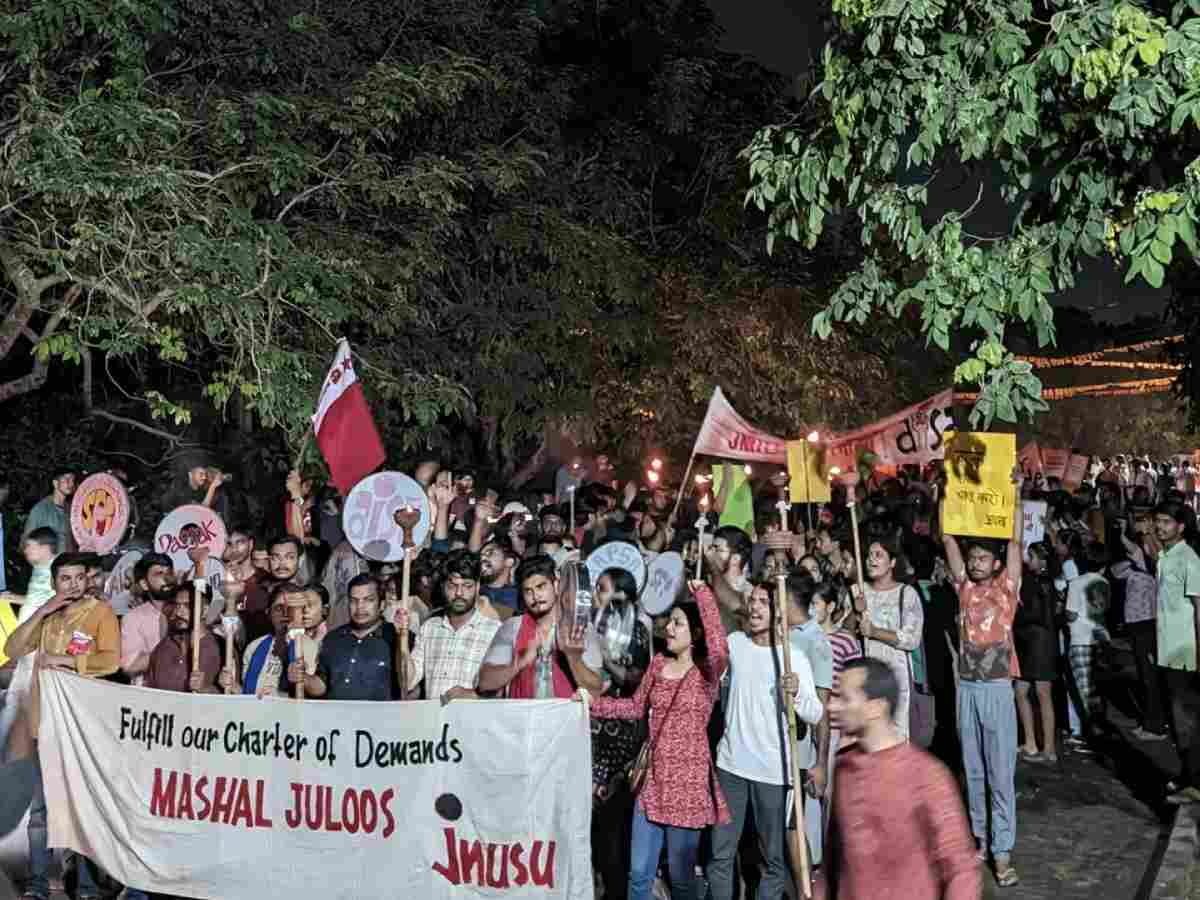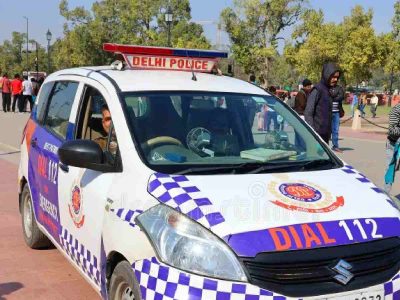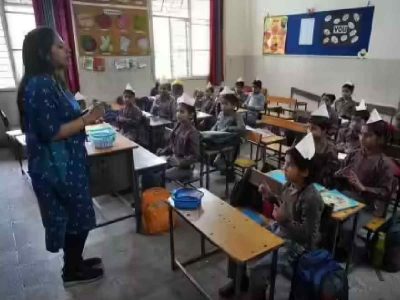Students from Delhi’s Jawaharlal Nehru University ( JNU) have decided to embark on a march on Friday to the Ministry of Education, protesting against the administration’s decision to redevelop two of the university’s prime properties under a public-private partnership model.
The decision was taken by the JNU Students’ Union to call the strike, with the entire student body participating in it, barring the general secretary. The decision to call for the march comes in light of their hunger strike, which has been ongoing for the past 12 days. However, while many have joined the protest, several were forced to quit due to severe health complications.
“As of now, there are four or six of us who have continued the protest for the past 11 days or so, while the newest member to have joined the hunger strike has been at it for the past four days,” said Nitish, a member of the All India Students’ Association who was one of the few who had initially organised the strike.
He added that the decision to go on a march was intended to force the administration to take note of their demands. “We want to see how the administration decides to try and quell our movement. There has been no police action till now, but it would not be wrong to suggest that there might be some kind of pushback from the police when we initiate our march,” he said.
Thursday marked the twelfth day of protest when the student body decided to boycott all classes being held on campus. “Scores of students boycotted classes to put pressure on the university administration,” said the JNUSU in an official statement.
Presently, two students have been hospitalized at AIIMS due to the hunger strike.
Apart from students in a few schools, particularly the School of Sanskrit and Indic Studies (SSIS), all other classes remained suspended.
“We have decided to sit on this fast for as long as required because we need some clarity on where the future of this university is headed. If it is meant to be a premier university, the onus falls on the government to take absolute care of it; otherwise, what is the point? We do not want a joint partnership scheme here. It will lead to heightened fees,” said Sreeja Biswas, a Ph.D student.
Dhananjay, the JNUSU president, highlighted, “We draw inspiration from Bhagat Singh and Jatin Das, who undertook some of the longest hunger strikes in history. Hunger strikes are a powerful method to demand change within a democracy. The future of several generations is at stake, and we are determined not to back down.”
He further stated that the financial crunch faced by the university was due to a couple of missteps taken by the administration, including holding admission tests online. He said, “Earlier, JNU would conduct its own entrance test at a cost of Rs 2.6 crore, but now, with the National Testing Agency colluding with them, the cost has risen to Rs 9 crore.”
JNU Vice Chancellor Santishree Dhulipudi Pandit had floated plans to redevelop the university’s prime properties in a public-private partnership mode and rent them out to address a fund shortage.
The redevelopment plan includes the Gomti Guest House and JNU’s center at 35 Feroze Shah Road, where the Indian Council of Historical Research operates, alongside the University Grants Commission, which has an office there.
However, none of them pay rent to the varsity.
Also Read: Delhi: MCD under-reporting data on unsafe buildings, suggests report
The students have been protesting against the alleged unresponsiveness of the VC regarding their charter of demands on August 11. The demands include the resumption of merit-cum-means scholarships, Barak hostels, reinstatement of the gender sensitisation committee, and the revocation of proctorial inquiries, among others.





